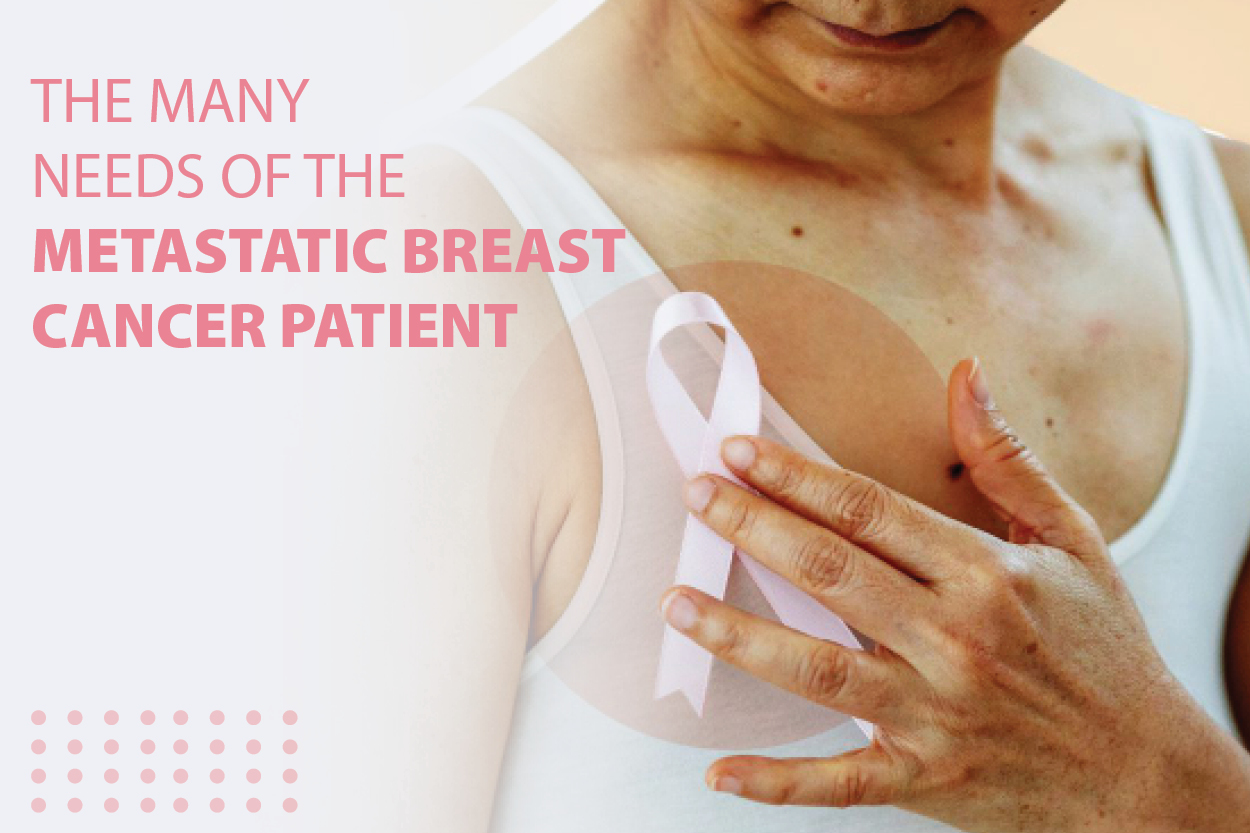Living with Hope
Patients with metastatic breast cancer and their families have complex needs. Because the overall survival of metastatic breast cancer patients is often prolonged, palliative care should be introduced at the time of diagnosis and is an integral part of overall cancer care. These patients typically undergo multiple lines of therapy, which can diminish their overall quality of life. Using a team approach to care and focusing on early symptom management is integral for optimizing their quality of life.
Management of metastatic disease depends on specific patient symptoms, including the location of the metastases, the burden of disease, previous treatments, and underlying comorbidities. Pain, shortness of breath, cough, diarrhea, loss of appetite, fatigue, insomnia, and neuropathy are some physical symptoms that metastatic breast cancer patients may experience. Psychosocial issues, including anxiety, depression, nervousness, and spiritual distress, are also common.
In addition to psychological syndromes, existential issues are important to recognize. For patients with advanced cancer, these may include concerns related to hopelessness, meaninglessness, disappointment, guilt, death anxiety, and personal identity disturbances. Existential distress is defined as the psychological turmoil individuals may experience in the face of imminent death, which threatens individuals on a physical, personal, relational, spiritual, or religious level. In patients, existential distress has been shown to lead to increased levels of depression, hopelessness, and desire for hastened death. 1
In the setting of advanced cancer, having hope remains important. As a palliative provider, I often attempt to focus on hope- patients hope for time, hope for treatment tolerance, hope to maximize the quality of their life, hope for strength for their caregivers and family, hope that as one approaches the end of one’s days that there is a feeling of acceptance and not fear, and hope for a peaceful and dignified death without suffering. Hope can be a powerful protector and allow patients with
advanced diseases to continue tolerating disease-modifying therapies. It is an essential component of our well-being, and even small moments of hopeful mindfulness can be impactful to patients and change
the focus of their day. Some studies have even suggested that increased levels of hope can benefit patients in coping with their diagnosis, help with pain and symptom management, and may even impact
survival.
The metastatic breast cancer patients I encounter are so grateful for the many treatment options, the team involvement and the overall support they receive. In speaking about hope, I explain that the mind frame of “living with metastatic breast cancer “needs to replace some of the fear associated with their cancer diagnosis because they are doing just that! They are living day by day, exuding strength some of us could never imagine because they are strong and determined. As a palliative provider, I am so grateful to be able to be part of their journey and I am often reminded that we, too, should have moments of “hope” in our daily lives.


